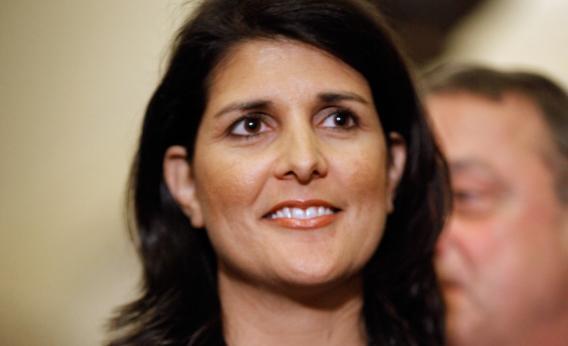Amanda, I actually think that Republican South Carolina Gov. Nikki Haley was right when she said on The View Tuesday that “women don’t care about contraception.” In a sense.
I agree that Haley stepped in it when she offered this needlessly polarizing line about contraception in response to Elisabeth Hasselbeck’s question about how the Republican platform is good for women. Haley was then predictably pounced on by liberal Joy Behar, and she backtracked, conceding that yes, women do care about contraception.
But the governor’s initial point contains a germ of truth. Women do care about contraception, of course, but political scientists have consistently found that women appear to care no more and no less about the whole spectrum of so-called women’s issues than men. Women associate more strongly with the Democratic Party than men, but, as political scientist Karen Kaufmann points out in her book, Unconventional Wisdom, concerns over reproductive issues don’t appear to figure into this. “Questions of abortion and women’s rights are two issue domains where gender differences generally do not exist,” Kaufmann writes. Rather, as I wrote in this piece on the history of the gender gap, women tend to be more liberal than men on matters like social welfare and military defense, and this accounts for women’s closer alignment with the Democratic Party.
Lois Duke Whitaker backs up Kaufmann’s point in her book, Voting the Gender Gap. On the question of whether “women and men should have an equal role” in society, a major study conducted repeatedly between 1972 and 2004 found that men and women’s opinions closely tracked one another, becoming more liberal over time. When there was a small gap between men and women it was often because men were more liberal in their answer to the question. The same trends proved true when men and women were quizzed on their support for abortion rights and for the Equal Rights Amendment. (As a new Real Clear Politics article points out, more men than women opposed the Virginia law requiring women seeking abortions to undergo an ultrasound first.)
With regard to contraception specifically, it is an oft-repeated media narrative that the issue has cost Republicans dearly in recent months. But I don’t buy it. As the Real Clear Politics piece by David Paul Kuhn points out, polling shows that the debate over mandated contraception coverage has hurt GOP front-runner Mitt Romney with women … not one whit. In a New York Times/CBS poll, women were almost evenly split on the issue of whether to support mandated insurance for birth control. They were more in favor of it than men, but they were nonetheless split. And another poll, by Gallup, shows that voters rank “government policies concerning birth control” below health care, unemployment, debt, international issues, and gas prices on their list of concerns as they consider the presidential candidates.
As for the women who do care deeply about women’s issues, they don’t always care in the direction we expect. Kuhn writes that contrary to the belief that the GOP is the party of white men, it is actually “the party of white men and white women.” What’s more, social conservatives like Rick Santorum appeal to women precisely because of their social conservatism. “More women are social conservatives than men,” Kuhn writes. Part of the reason we associate women’s issues with female support may be that with abortion, at least, women tend to collect at the most polarized ends of the issue. Whitaker points to some polling finding that “women were more likely to fall in the extreme categories on abortion questions—never allowing abortions or allowing abortions in all cases.” If the most vociferous supporters of abortion rights happen to be women, it’s easy to conclude that women support abortion rights more than men do. But that conclusion appears to be wrong.
